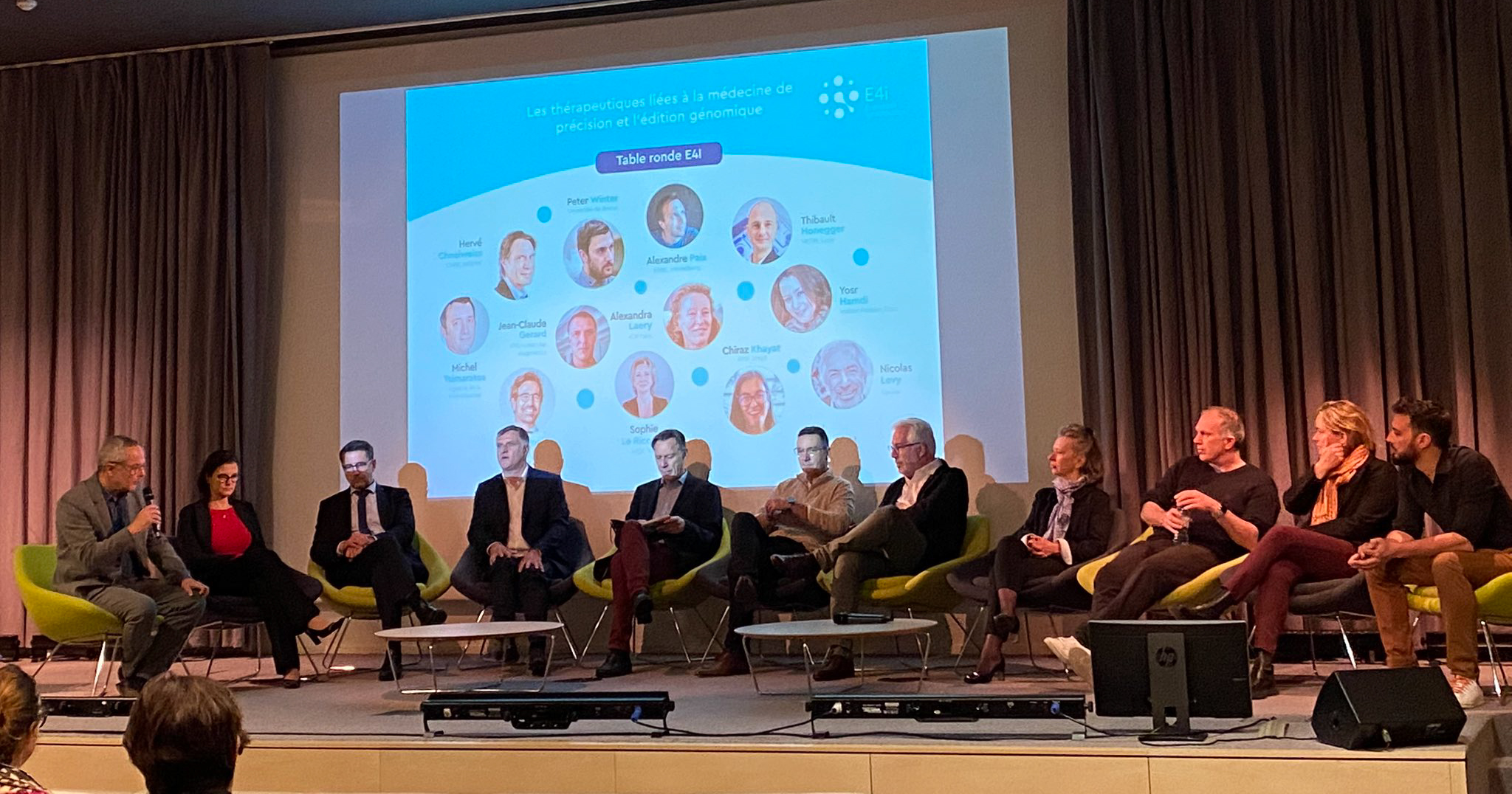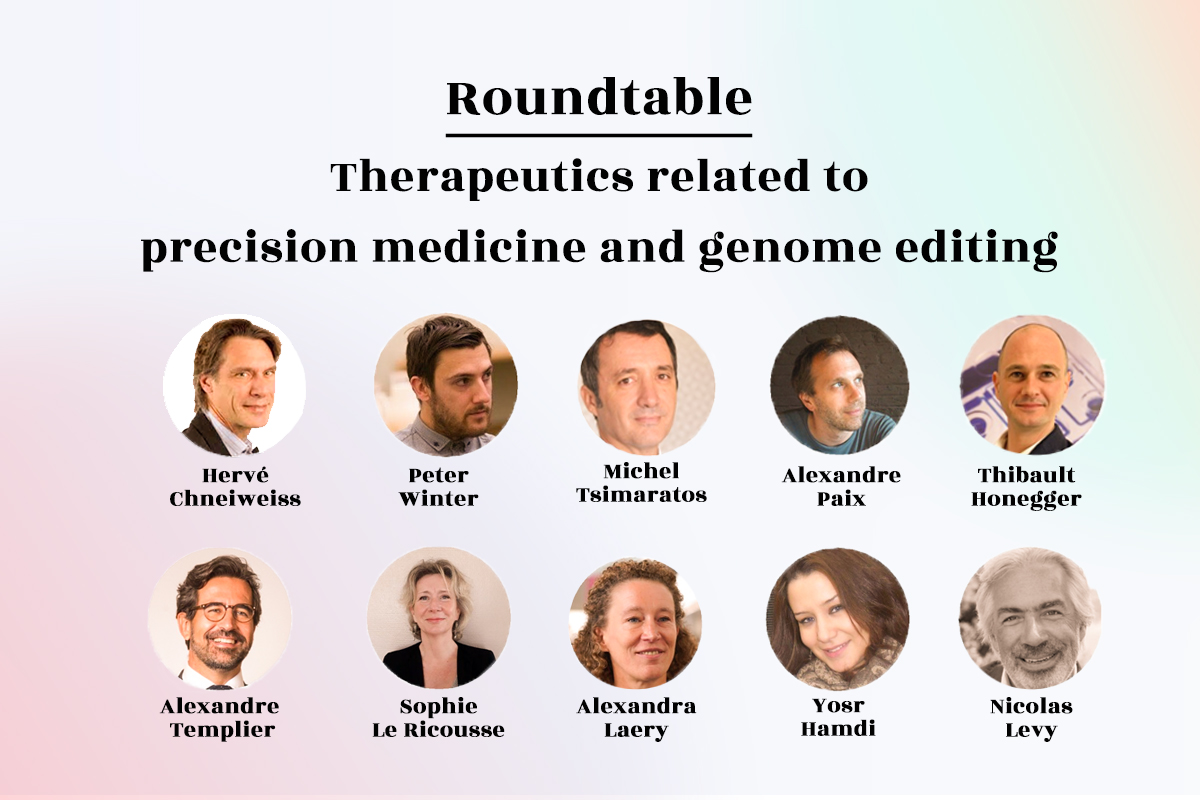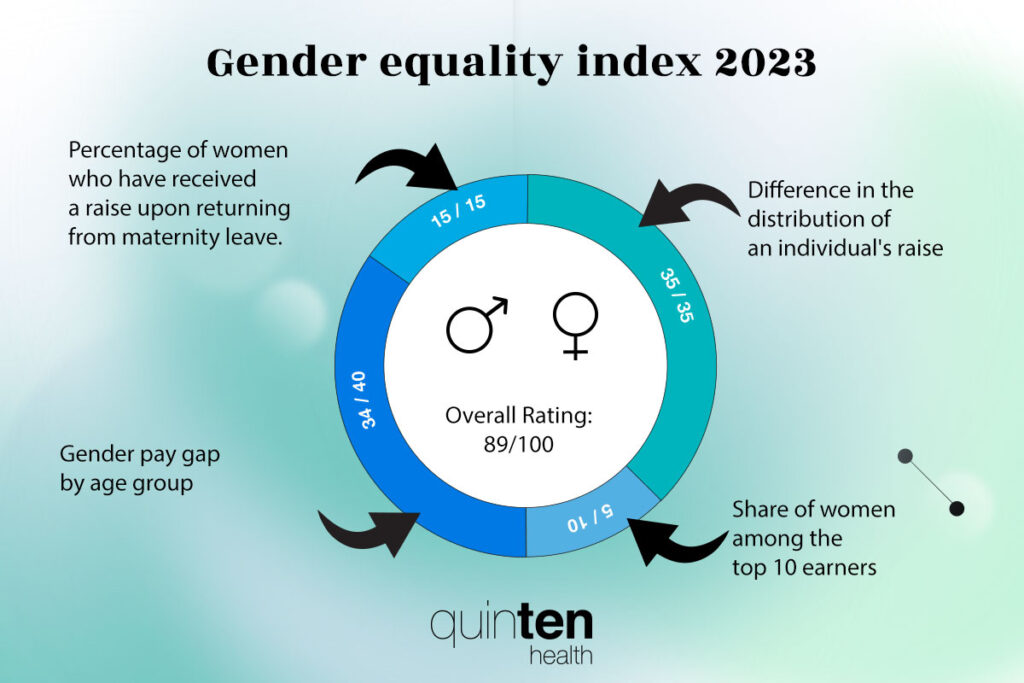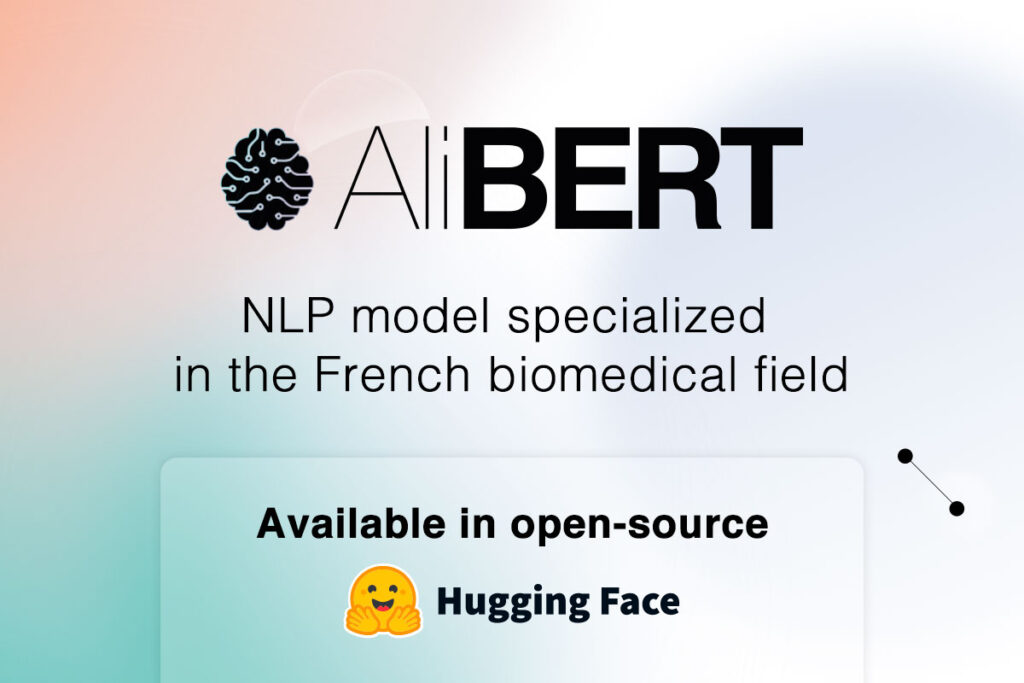The theme of the round table was innovative therapies related to precision medicine. Alexandre Templier spoke about how real-world data (RWD) is set to revolutionize the clinical development and market access of innovative therapies, by modelling the heterogeneity of patients, their evolution and their management, within each pathology.
Quinten Health, a French pioneer in AI applied to healthcare since 2008, supports pharmaceutical and biotech companies in their clinical development programs and market access by specifically exploiting RWD using machine learning and simulation algorithms.
“When studying pathophysiological mechanisms at the smallest scale, we are faced with complex, redundant, evolving and interconnected phenomena that have to be simplified : identifying and validating a target, before starting to develop a drug. The methods for exploring and characterizing living tissues are becoming increasingly sophisticated and complex. The volume of information thus generated is increasing faster than our ability to exploit it. These cellular and molecular data do not yet allow us to model and simulate the heterogeneity of pathologies and their evolution on the scale of individuals and populations” he introduced.
Using rare diseases as a “very good example” , he reminded the audience that, despite a limited number of patients, rare diseases are expressed through a diversity of phenotypes : some patients develop the disease earlier than others, some “progress” faster, others have a good or poor prognosis, some have more severe co-morbidity profiles, etc.
A number of companies are specialized in the modelling of biological phenomena on the smallest scale (“mechanistic models”). Although being most often focused on discovery and early clinical development, their ultimate goal is to be able to simulate – from the smallest scale to individuals and populations – the heterogeneity of patients and the diversity of responses to treatments. In contrast, Quinten Health proposes a different and complementary approach, much more focused on clinical development and patient care, essentially based on the exploitation of RWD.

This modelling makes it possible to represent phenotypes, their evolution over time and their medical management. From these models, Quinten Health experts are able to propagate the information generated by the first clinical trials on patients, over time and on the scale of the complexity of the disease.
“From a limited number of patients included in clinical trials, the aim is to provide regulators and payers not with evidence of the effectiveness and safety of new treatments in real life, but rather to project their effectiveness and benefit/risk ratio in real life while assessing the uncertainty associated with these projections. To move from a maximum level of uncertainty to a reduced level of uncertainty in a documented, transparent and auditable way. Eventually, there will be one reference model per disease. And these models will be continuously improved, thus gradually reducing the uncertainty margin of the simulations” he added.
When asked how these models will be used, Alexandre Templier shared his vision of a secure platform that will allow manufacturers to carry out their simulations while preserving the confidentiality of their clinical data, based on reference models that have been audited and validated by regulators and payers.
“The heterogeneity, natural history and management of a disease are realities that apply equally to all players developing solutions for it. The emergence of mutualized reference models is unavoidable,” he said. “We will soon be announcing major partnerships on our first disease models.
We are currently still in the era of the data economy. With central issues that everyone is trying to solve. Accessibility, interoperability and reusability of health data are indeed at the heart of the concerns of all the players, who dream – quite legitimately – of a world in which care is continuously improved thanks to the development and deployment of ever more effective machine learning and targeting algorithms. However, it is likely that the knowledge economy will overtake the data economy before the data flows in a fluid and standardized way. Recent news with ChatGPT and GPT4 highlight the challenges we face in terms of information and knowledge reliability. Some domains, such as Health, require a level of transparency and trust that these ‘black boxes’ will not be able to meet before long” he concluded.










